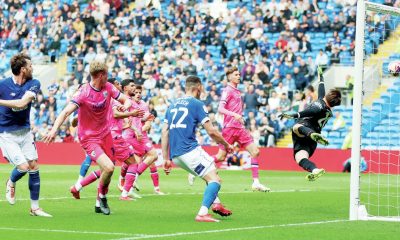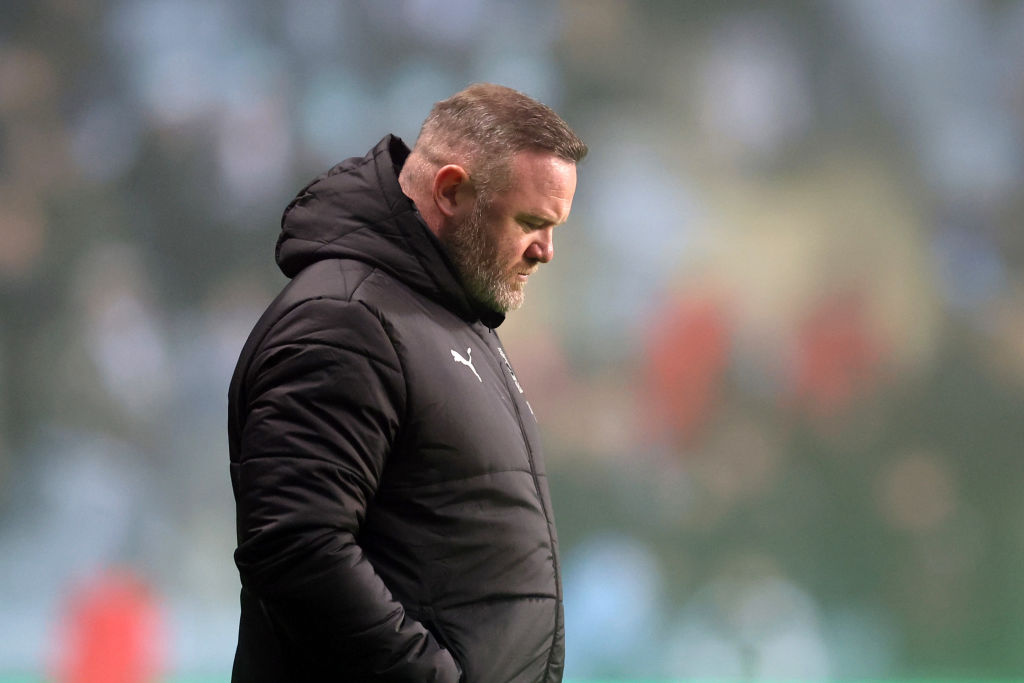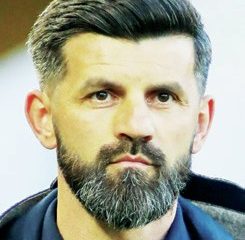I have enjoyed the most incredible learning experience this week. It has been a genuinely significant and challenging time. And a hugely rewarding challenge – so far!
The story starts with my time at Preston. Out of the blue one day I suffered a ludicrous coughing fit. I thought I was going to drop down dead. I could not breathe as my throat seemed to close up. I was shocked and terrified; I honestly cannot remember having a cold, let alone what seemed like a life threatening moment. I was gasping for breath for what seemed like an eternity.
Over the following six weeks I was given antibiotics for bronchitis. I took them but it didn’t make sense to me. Then I had my lungs x-rayed; I run 10km+ most days and hadn’t noticed any deterioration in my breathing abilities so that didn’t really add up and fortunately those pictures were clear. Eventually, I just accepted that my throat was a bit clammy, my voice was a bit hoarse, I coughed and spluttered a bit and lost my voice here and there. I was travelling a lot, often around 1,500 miles a week, and stress and tiredness were mooted.
Last summer came and went; a good period of rest was available so I took it. But the problem was still there in August.
Finally, I went to a top ENT specialist, who listened to me briefly and immediately, and knowingly, put a camera up my nose and down my throat to point at a problem with my vocal chord. He told me I would need a small procedure to sort out a problem that appeared to be a ‘polyps’. He told me that it didn’t ‘seem nasty’ but that there was a problem for me. I wouldn’t be able to speak for two to four days after the operation and it would take 10-14 days before I could start thinking about using my voice properly. My operation was last Tuesday.
Now, there are many occupations in which it might be possible to cope easily with the kind of schedule that was needed. But football management isn’t one of them. The challenge was to plan a fortnight’s work knowing I was going to lose my voice completely.
On Monday I explained the situation to my players, having already chatted it through with my management. Mine are a terrific bunch of lads and I was sure they were going to be truly supportive; and equally sure from the wry smiles that the banter was going to fly!
I took first team training on Tuesday morning. By 3pm Tuesday afternoon I was under the surgeon’s knife. By late Tuesday, I was in my hospital bed, chatting by text to my staff about last minute details relating to our important County Cup Tie at home that evening. It was a great tonic to get the 4-0 result through and to receive strong reports on a couple of lads that we expect may be key in this weekend’s FA Cup tie and on some Academy prospects in whom we have high hopes.
I was released during the evening and began to appreciate the difficulties of being unable to speak!
Try getting a cabbie to treat you seriously when you try to persuade him in silence to take you home. Eventually, by writing him a letter, I managed to convince him that I was for real!
I was forbidden from driving for 24 hours after my general anaesthetic, so I had to organise a lift into training on Wednesday morning.
Watching a video of the Tuesday night game was an important first job of the day. I have never been so grateful for a whiteboard as my staff treated me like a foreigner, talking at snail’s pace. Because I couldn’t speak, they assumed I couldn’t hear! As we exchanged opinions, I realised how much of what I wrote was being misinterpreted.
Because my written word was all I had, it was fascinating having the words played back to me ‘wrongly’. I knew what I meant but the receivers of my message weren’t hearing it all as I meant it.
It was frustrating; but highly educational. I have never examined my communication skills in so much detail as I did, beginning then and continuing throughout the day. While my staff took training, I prepared a series of written presentations for three of my players to deliver to the squad. I wanted to deal with three key topics and asked my captain and two other senior pros to deliver my message back to the squad.
Again, I was stunned when the presentations were given at the different interpretations that the lads had of what I was trying to say. They all gave their 110 per cent attention to the job and I really appreciated their great work. In some instances though, they completely misread what I was trying to say. As coaches, we can get frustrated by our players’ apparent failure to take on board what we are trying to teach them, but we don’t always appreciate that what we are saying might have different interpretations.
The learning for me in this exercise was staggering. Things got worse when I visited the main ground to do some individual work with our set play specialists late on Wednesday. Trying to coach detailed technical information one on one was one of the toughest experiences of my life.
Nowadays, we all have foreign speakers in or around our squad and I started appreciating just how they must feel when they aren’t being understood. It is so easy to give up!
I persisted and persisted and finally closed off my coaching by individual text messaging after the session to check understanding. By the end of Wednesday, I had begun the detailed process of making sure that I learned the many lessons and sharpened up my messages for our impending match planning sessions.
My Friday morning team meeting, our set play session and our game/match pattern work was much more fluent and much more coherent. My interaction with my staff at our match planning meeting was improved 100 per cent from the Wednesday as we all learned to deal with the problem. Through a mixture of individual and collective one-to-one and squad meetings, with occasional (now allowed) whispers, sign language conversations and improved messaging, the output that was being taken on board was much clearer.
By the end of Friday, I was certain that the team was thoroughly prepared on all levels.
In fact, such was my attention to what people were taking on board, that I realised the risky gap in communications that exists in our normal processes. And so my difficult journey will continue. As I write this column, I have planned my team talk for Saturday. I know what I want to say and how I would deliver my message but a teamtalk isn’t a whisperer’s role!
So I have delegated the responsibility and worked closely with my staff and other junior and senior players to produce a strong and clear match-winning message that they consider to be theirs as well as mine and that they want to deliver. A team talk is exactly that; so it is a strength for our voice to be spread throughout the team.
While I would have preferred not to have needed the operation, I will be a much stronger communicator for the learning that I am gaining. No pain, no gain they say. Plenty of pain and plenty of gain here this week!
TIME TO CHANGE RULES ON SUBS
ROBERTO Martinez suggested that an additional substitute should be allowed in the event of a concussion incident, following last weekend’s incident at Goodison Park.
I have previously suggested that a ‘blood’ substitute should be allowed for, say 15 minutes, following a blood injury, allowing a player to receive proper rather than rushed attention. I really do think that the whole issue of substitutions and injuries needs thinking about.
At Wembley in 2010 my Stevenage side were reduced to nine men when Barrow had a player sent off in an FA Trophy Final incident that led to my player Charlie Griffin being hospitalised.
We had already used our three subs at the time of the sending off. That moment ultimately cost us the tie as our nine men ran out of legs in extra time.
The media at the time suggested that we had seen the type of incident that ought to lead to a rule change.
Somewhere down the line, I am sure that change will come about. It should.
BOULD IS PROVING HIS WORTH
ARSENAL look the real deal and it comes as no surprise to me that Steve Bould is playing a strong role in that.
I studied for my A License alongside some great pros. Steve was one of them. He had the benefit of playing in those successful Arsenal sides but, more importantly, had the ability to command respect and to communicate a clear strategy to players.
Winning in Dortmund was a tremendous result and that, coupled with their fast start to the Premier League, shows they are serious candidates if they can keep players fit.















